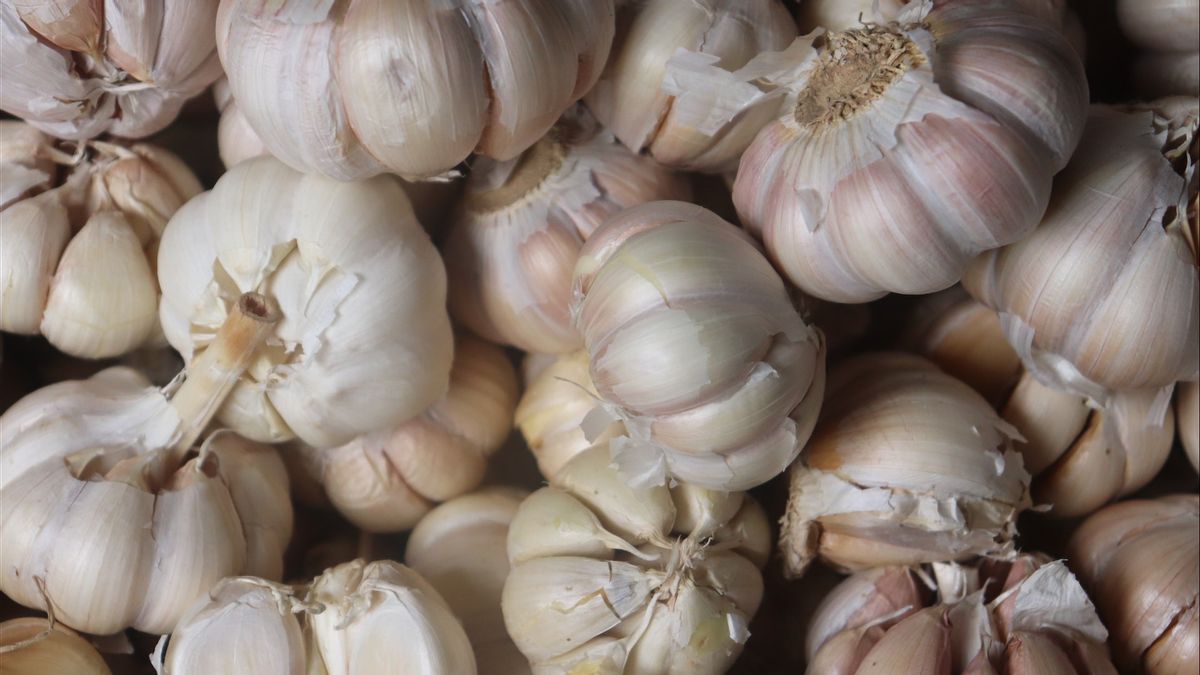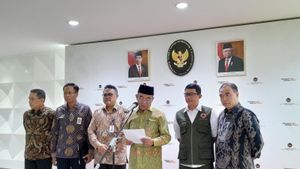The Ombudsman of the Republic of Indonesia said that the permit for garlic imports issued by the Directorate General of Horticulture of the Ministry of Agriculture through the Recommendation for Imports of Horticulture Products (RIPH) in 2023 will reach 2 times the set amount.
The “ 2023 is set at 560 thousand tons of garlic imported but the RIPH is 1.2 million, almost double. Yes, it doesn't have to be the same, but if the amount like this will definitely cause problems, the struggle for SPI (IMport Approval Letter),” said Member of the Indonesian Ombudsman, Yeka Hendra Fatika when delivering information to the media online at the Indonesian Ombudsman Building, Jakarta, Antara, Tuesday, January 16.
The number of RIPHs issued by the Ministry of Agriculture is considered by the Ombudsman as abuse of authority in the issuance of RIPH garlic which is not based on the plan to import garlic that has been set by the government through the Limited Coordination Meeting of the Coordinating Ministry for Economic Affairs.
"In the service of legal obligations in harmonization of regulations related to the issuance and implementation of imports with regulations in the field of quarantine and import licensing in the policy stage, we see that there are allegations (maladministration) there," he said.
Yeka said the Ombudsman team in the field also found that business actors were subject to illegal levies in the issuance of the RIPH. The amount of the levy varies from Rp200-250 per kg to the amount of the RIPH to be issued.
"For example, RIPH gets a quota of 6,000 kg and SPI 1,000 kg, still the levy is 6,000 kg according to the RIPH, not the amount of imports," said Yeka.
Based on these findings, the Ombudsman concluded that there was potential maladministration carried out by the Directorate General of Horticulture (Ditjen Horticulture) of the Ministry of Agriculture in the issuance stage.
The potential for maladministration is the neglect of legal obligations in the validation of the RIPH garlic application file, the neglect of legal obligations in monitoring requests for rewards or illegal levies for issuing garlic, and not providing services in tightening the issuance of garlic import permits for new companies.
It did not stop there, the Ombudsman also suspected that there was an act of maladministration carried out by the Directorate General of Horticulture in the implementation stage of mandatory planting.
In accordance with the Regulation of the Minister of Agriculture Number 46 of 2019 concerning the Development of Strategic Horticulture Commodities, importers are required to plant 5 percent of the total import submissions.
However, the Ombudsman found that there was a discrepancy between the mandatory commitment to plant and the mandatory realization of planting garlic by importers. Including the presence of fictitious members in the implementing farmer group, it is mandatory to plant garlic.
Therefore, the Ombudsman suspects that the Directorate General of Horticulture has taken maladministration in terms of the policy stage because it does not provide optimal service in supervising the mandatory cultivation of domestic garlic due to the mandatory planting policy after the issuance of import approvals.
“We will focus on two things. Investigating the alleged neglect of legal obligations in monitoring the suitability of the area and the location of realization of mandatory planting and the neglect of legal obligations in the validation of the report on the realization of mandatory planting,” Yeka said.
As a follow-up to the findings, the Ombudsman will conduct an examination of the Secretary of the Directorate General of Horticulture and Director of Horticulture Result Processing and Marketing as the party that verifies and validates the requirements for the RIPH application on Wednesday (17/1).
Then proceed with the summons of the Director General of Horticulture and the Director of Horticultural Protection as the official in charge of carrying out the formulation and implementation of policies in the field of horticultural protection on Thursday (18/1).
SEE ALSO:
The English, Chinese, Japanese, Arabic, and French versions are automatically generated by the AI. So there may still be inaccuracies in translating, please always see Indonesian as our main language. (system supported by DigitalSiber.id)
Most Popular Tags
#Prabowo Subianto #New Year #Mother's Day #nataru #NatalPopular
23 Desember 2024, 00:04
23 Desember 2024, 00:55
23 Desember 2024, 03:01
23 Desember 2024, 04:15
23 Desember 2024, 01:41


















